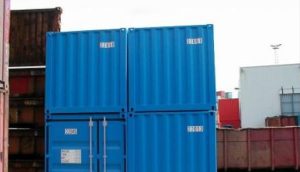 In a significant development, Nigeria’s capital importation saw a remarkable 210% increase in the first quarter of 2024, according to the latest report from the National Bureau of Statistics (NBS).
In a significant development, Nigeria’s capital importation saw a remarkable 210% increase in the first quarter of 2024, according to the latest report from the National Bureau of Statistics (NBS).
The report, released on Monday, revealed that the total capital importation into the country stood at $3,376.01 million, a substantial jump from the $1,132.65 million recorded in the same period last year. This represents a staggering 198.06% year-on-year increase.
When compared to the last quarter of 2023, the national capital importation value rose by an even more impressive 210.16%, from $1,088.48 million.
The NBS attributed this surge to a significant rise in portfolio investments, which accounted for 61.48% of the total capital importation, valued at $2,075.59 million. Other investments followed with $1,181.25 million (34.99%), while foreign direct investment recorded the lowest at $119.18 million (3.53%).
The banking sector emerged as the leading recipient of capital inflows, attracting $2,067.44 million, which represented 61.24% of the total. The trading sector and the production/manufacturing sector trailed behind with $494.93 million (14.66%) and $191.92 million (5.68%), respectively.
Among the financial institutions, Stanbic IBTC Bank Plc received the highest capital importation, amounting to $1,257.38 million (37.24%), followed by Citibank Nigeria Limited with $547.71 million (16.22%) and Rand Merchant Bank Plc with $528.73 million (15.66%).
Geographically, Lagos State remained the top destination for capital importation, attracting $2,782.41 million, which accounted for 82.42% of the total. Abuja (FCT) followed with $593.58 million (17.58%), while Ekiti State recorded a negligible $0.01 million.
The report also highlighted the sources of Nigeria’s capital importation, with the United Kingdom leading the pack with $1,805.83 million, accounting for 53.49% of the total. The Republic of South Africa and the Cayman Islands followed with $582.34 million (17.25%) and $186.21 million (5.52%), respectively.
This surge in capital importation is seen as a positive sign for the Nigerian economy, reflecting increased investor confidence and the country’s growing attractiveness as an investment destination.

